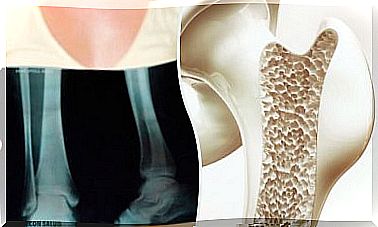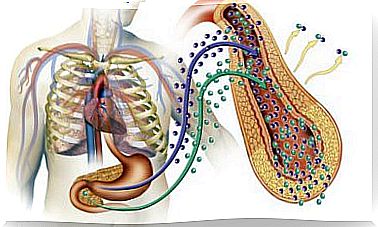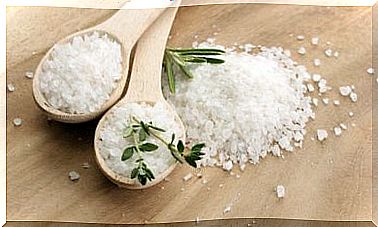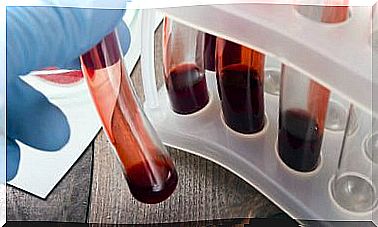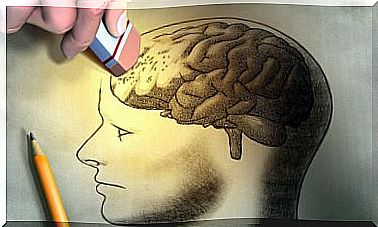Mallory-Weiss Syndrome: What Are Its Symptoms And Treatment?
Mallory-Weiss syndrome is a disorder in which a person has lacerations or tears in the area where the esophagus and stomach meet. It usually heals spontaneously, but other times it requires treatment.
This is usually caused by episodes of heavy vomiting. The most common is that lacerations or tears appear some time after several episodes of this kind. Therefore, those who have disorders that include frequent vomiting are more likely to suffer from this syndrome.
Mallory-Weiss syndrome is most common in older people, ages 40 to 60. However, it can also affect adults of other ages and even children. This condition occurs in both men and women in equal proportions.
General aspects of Mallory-Weiss Syndrome

In Mallory-Weiss syndrome, lacerations or tears usually heal on their own in 7 to 10 days. However, it is also possible that they lead to more profuse bleeding, which may sometimes require surgery.
There are some factors that increase the risk of Mallory-Weiss syndrome. These are:
- Ingestion of large amounts of alcohol.
- Severe liver disease.
- Cough, hiccups or great effort in the bowel movement.
- Hiatal hernia, esophagitis, or gastritis.
- Abdominal injury
- Bulimia.
- Nausea and vomiting during pregnancy.
- Giving birth.
- Certain medications.
Up to 25% of patients do not have any of these predisposing factors. In turn, 83% of those with Mallory-Weiss syndrome have some type of prior abnormality in the gastric mucosa.
What symptoms does it produce?
The typical symptom of Mallory-Weiss Syndrome is digestive bleeding. The normal thing is that it gives way spontaneously. If the bleeding is very profuse, it will exit the digestive tract through the mouth or anus.
In the stool the blood appears in the form of threads or manes, or completely digested in the stool. If this is the case, the stools will be black in color. If it comes out in vomit, the blood rarely shows its typical red color. Your appearance will change to a more brownish shade.
There are other diseases that generate similar symptoms. Among them, Zollinger-Ellison syndrome, chronic erosive gastritis, peptic ulcer, perforation of the esophagus or Boerhaave syndrome.
Treatment of Mallory-Weiss Syndrome
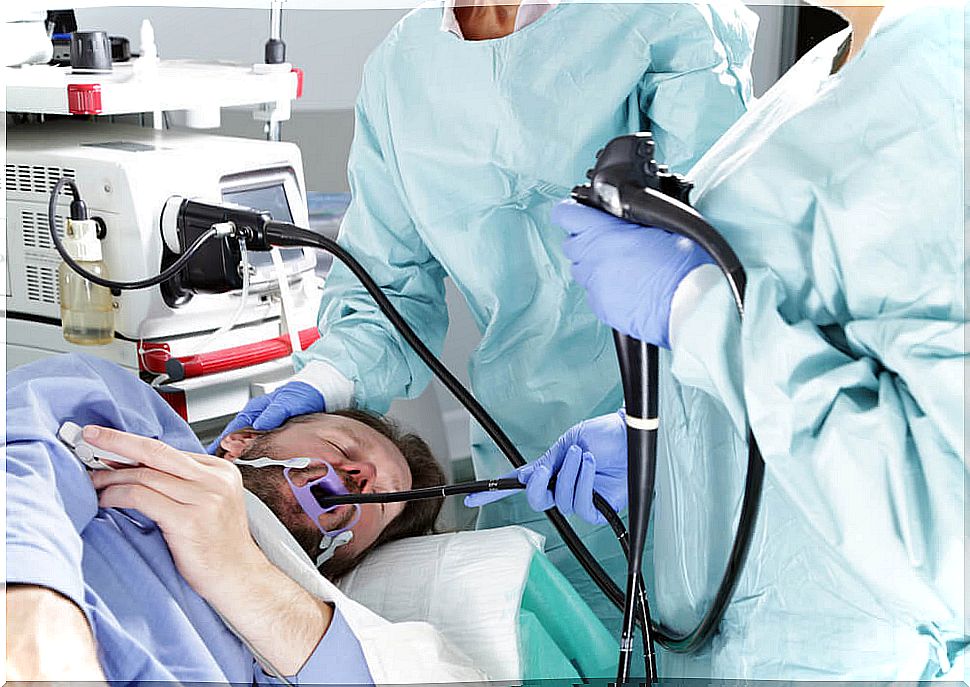
As we have already mentioned, in most cases the wounds heal without the need for any intervention. Typically, this occurs within 24 to 48 hours. During this time the patient must be under medical observation. Healing occurs between 5 and 10 days later.
If the bleeding does not stop, most commonly, medications are given to reduce heartburn. Also to control vomiting and nausea. The effectiveness of the drugs is under debate. If the problem persists, the usual thing is that one of the following two lines of action is followed:
- Injection therapy : Medications are injected to close the blood vessel and stop bleeding.
- Coagulation therapy : Heat is applied to seal the vessel that is torn.
- Surgery. It is only necessary to perform it in the most serious cases, which are a minority. It is done laparoscopically and the goal is to stitch up the laceration.
In some cases, the patient requires a blood transfusion after these procedures to compensate for the loss of blood from the bleeding. This occurs in a proportion of 40% to 70% of the cases.
Prevention and prognosis
The best way to prevent Mallory-Weiss syndrome is to eat a healthy and balanced diet. It is also advisable to reduce alcohol consumption to a minimum. Any practice tending to induce vomiting should be avoided.
In general, Mallory-Weiss syndrome is uncomplicated, except for the consequences of blood loss from bleeding. Hemodynamic stability is affected in 9% of patients . The mortality rate from this disease is very low.
The outcome of Mallory-Weiss syndrome is usually very positive. However, when there are liver cirrhosis problems or blood clotting disorders, the likelihood of having new bleeding episodes in the future increases significantly.
Conclution
Mallory-Weiss syndrome affects the area where the esophagus meets the stomach, causing tears and bleeding. It usually heals on its own. However, in the most serious cases, today we have different techniques that allow us to eradicate the problem.
We recommend that you adopt healthy lifestyle habits such as maintaining a healthy diet and playing sports on a regular basis. These habits will help you prevent Mallory-Weiss syndrome.
